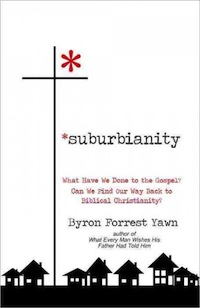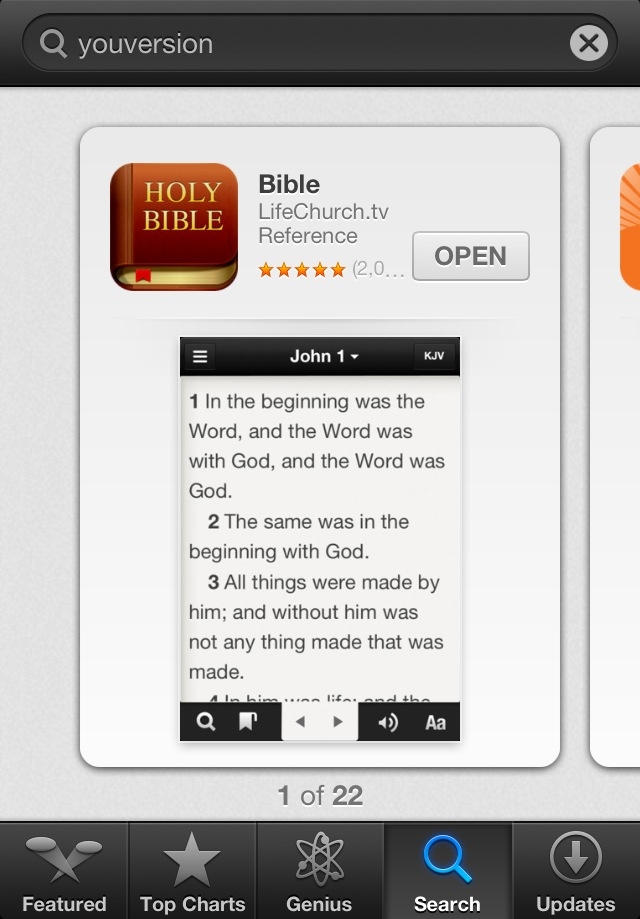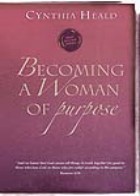“What have we done to the Gospel? Can we find our way back to Biblical Chrisitanity?”
These are the subtitle questions Suburbianity by Pastor Byron Yawn seeks to answer. I would sum up the term “suburbianity” as nominal, culturally-defined Christianity which preaches and believes a false gospel of self-esteem boosting spiritual jargon, loosely tied to Jesus. This book was convicting, thought-provoking, and a great conversation starter. In just over 200 pages, Pastor Byron basically makes the case that suburbianity is not the gospel; indeed, the gospel is the gospel and we ought not forget it.
In his introduction, Pastor Byron makes a series of statements designed to gauge your understanding of Christianity as compared to suburbianity. They are statements like:
Being a Christian is not about being a good person.
Wealth is not a sign of God’s favor.
There is no essential difference between local and world missions.
Jesus would be confused in many of our church services.
Vegetables can’t sing. (p. 11-13)
While I agree with most of his statements wholeheartedly, some (most even, I would argue) need more fleshing out than 226 pages can contain. He counters the critic with “A Rejoinder” at the end of the book which gives one scriptural defense for each statement. Pastor Byron is attempting to “pull evangelical fish out of water” in order to objectively look at what we’ve been swimming in (p. 14). I think it’s obvious that he is going for shock value with many of his statements, sort of a big wake-up call to those inundated with Christian subculture.
Byron Yawn pastors in Nashville, TN: the heart of the “Bible Belt.” I live in one of the most un-churched, socially liberal (but highly “spiritual”) regions in the U.S.–that is I live in the suburbs of Denver, CO. But fascinatingly enough, his descriptions of suburban folk in Nashville fit pretty closely with suburban folk here. Though they may not consider themselves Christians, suburban Denver folk are usually middle-class, affluent, conservative, and heavily emphasize family values. So maybe our contexts are not quite so different as geography and demographics would suggest. There are certainly plenty of people in Denver, suburbanites or otherwise, that need to hear the true gospel.
The rest of book is broken down into three parts: The Gospel, The Bible, and The Church. In the first chapter of “The Gospel,” Pastor Byron relates the story of Joe approaching him after a church service to tell him he had brought his unsaved parents with him, to which Pastor Byron replied:
“That’s great. Thanks for joining us here at Community.”
“Well actually it’s been a huge mistake. I’m sorry I brought my parents here. You’ve reinforced every stereotype they have about Christianity. I can’t believe you preached for forty-five minutes and never mentioned the gospel. This is tragic.” (p. 68)
Joe then walks away with slumped shoulders before Pastor Byron can form a response. I loved this story because of the impact it had on Pastor Byron’s life and preaching. I know I’ve felt this way before in church services and wouldn’t be able to say it with the genuine love and concern that Joe did. But I just love hearing peoples’ stories of “gospel wakefulness” (to borrow Jared C. Wilson’s term). Because, as Pastor Byron says, once the lightbulb comes on, it owns you. (p.71)
“The Bible” chapters were by far my favorite of the whole book. Here you really feel Pastor Byron’s passion for the gospel as the central message of the Bible and the point of our existence.
According to Calvary, our greatest need is not a better marriage, an improved self-image, financial success, or any other of the suburban daydreams. It’s reconciliation to a holy God. (p. 95)
He explains with zeal that Jesus is the central theme of the Bible and it is impossible to overemphasize Him. He hammers that the main point of Biblical stories and characters (Abraham, Moses, Joseph, David) is not to mimic them morally, but to see how their lives point to and culminate in Jesus.
At some places the Bible gives us a 30,000-foot view (as in the Old Testament histories), and at other times it plummets to ten inches off the deck (as in the New Testament epistles). But every book of the Bible is a description of events leading up to or disclosing Jesus and the implications of His life, death, and resurrection. (p. 115)
The Bible is either revealing [the gospel], explaining it, defending it, or encouraging us to live in light of it. (p. 115)
It is so helpful to read the Bible from this perspective. When you come to it with the self-help attitude of how-do-I-apply-this-to-me-ism, it’s so difficult to consistently read the Bible. But when you come to it with an attitude of how-do-I-apply-this-to-Jesus (and his life, death, and resurrection—i.e. the gospel) all of a sudden it all makes sense. I can attest to this personally.
“The Church” chapters are probably the most controversial because they touch on politics, strategies, ethics, missions, and what it means to have a “Biblical worldview.” These chapters are a great launching point for further conversation and are probably not intended to be the final word on how the church in America should look. He raises some excellent points about evangelizing our neighbors and considering the man in the suit and tie just as needy (for an atoning substitute) as those living in shacks in Haiti.
Overall, I’d recommend this book to anyone living in the suburbs and especially pastors or others in ministry. I would recommend it to folks subscribing to suburbianity knowing that this book will likely offend them, but with the prayer that it might open their eyes to see Jesus. I’d also recommend it to folks newly “gospel-awakened” as an encouragement to keep on keepin’ on making Jesus a big deal.







